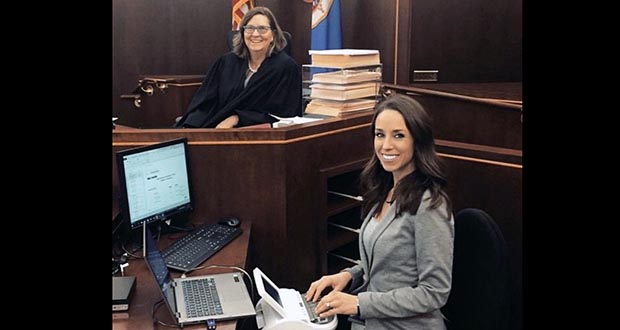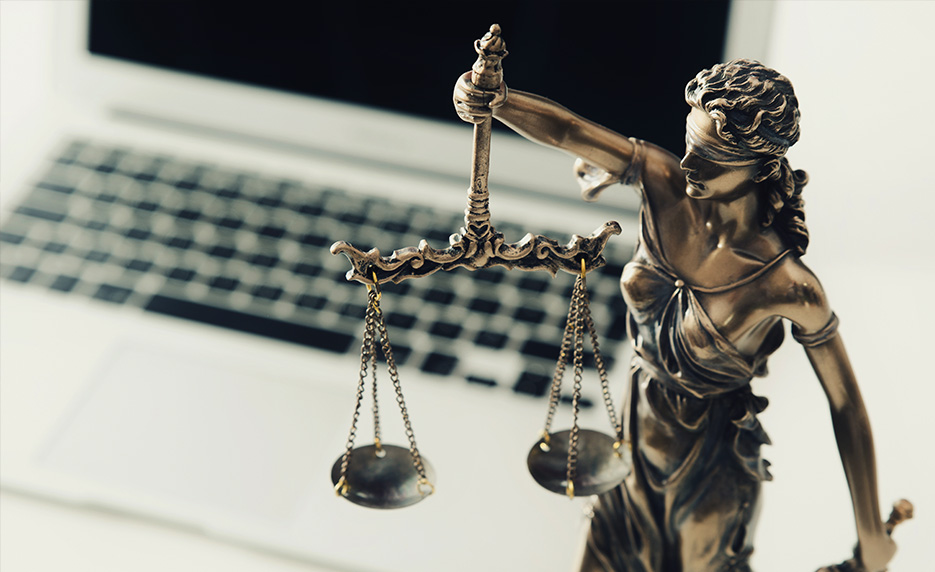Durham court reporting vs. digital recording: which is better?
Wiki Article
Everything About Court Reporting: Crucial Insights Into Its Relevance in Legislation
Court reporting serves an essential feature within the legal framework, supplying a accurate and reliable document of process. Through innovative methods and tools, court press reporters capture the nuances of testaments and legal dialogue. The relevance of their work prolongs past mere transcription. As the legal landscape advances, so also does the role of innovation in court reporting. Recognizing these dynamics exposes much deeper implications for justice and transparency in the legal system.The Function of Court Reporters in the Legal System

Although often neglected, stenotype reporter play an important function in the lawful system by making certain a verbatim and accurate document of proceedings. Their key duty entails recording talked words throughout tests, depositions, and various other legal events, which acts as a main record for future recommendation. This documents is important for allures, as it provides the necessary details for reviewing choices made by courts and juries.
Stenotype reporter have to have phenomenal listening abilities and a deep understanding of lawful terminology to capture the nuances of testament and argumentation accurately. Their job adds to transparency within the judicial process, permitting liability and fairness. In addition, they promote accessibility to justice by making records readily available to entailed events, making sure that everybody has the opportunity to review the process. In this method, court reporters promote the stability of the legal system, strengthening the value of precise communication in issues of regulation.
Tools and methods Utilized in Court Reporting
In court reporting, numerous methods and devices improve the accuracy and performance of transcription. Stenography innovation plays a significant duty, allowing press reporters to capture spoken words swiftly, while digital recording techniques use alternative solutions for paperwork. Recognizing these devices is vital for grasping exactly how court press reporters satisfy their vital feature in the lawful system.Stenography Modern Technology Introduction
Stenography technology acts as the keystone of modern court reporting, allowing specific and efficient transcription of spoken discussion. Making use of specialized devices understood as stenographs, stenotype reporter can record speech at remarkable rates, frequently surpassing 200 words per min. These machines utilize an one-of-a-kind key-board layout that enables numerous keys to be pushed simultaneously, creating phonetic representations of words - durham court reporting. This approach decreases the need for considerable spelling and enhances transcription accuracy. Additionally, stenographers use various shorthand methods and signs to additional enhance the procedure, making certain that no information is neglected during procedures. The combination of stenography innovation not just promotes efficient communication in legal settings however also supports the integrity of the judicial process by offering precise and trusted documents of conversationsDigital Recording Techniques
A boosting variety of court reporting experts are turning to electronic recording approaches to improve the accuracy and performance of their transcriptions. These methods use advanced sound and video clip innovation to catch process in real-time. Digital recorders, typically paired with premium microphones, guarantee that every word spoken is preserved with quality. Specialized software program can transcribe audio files instantly, enabling for quicker turn-around times. Some specialists integrate dual recording systems for redundancy, assuring no vital information is shed. On top of that, electronic recordings can be easily indexed and looked, helping with swift access of specific sections. As legal settings develop, welcoming these digital devices not only improves the reporting procedure but likewise keeps the stability of the document.The Significance of Precision in Transcription
Accuracy in transcription is crucial in court reporting, as it ensures that lawful records reflect real content of procedures. This accuracy can significantly affect case outcomes, impacting the choices made by courts and judges. As a result, keeping high requirements of precision is paramount in the legal occupation.Precision in Legal Records
The lawful system counts heavily on eloquent debates and influential rhetoric, the true backbone of judicial process lies in the precision of legal records. Precise transcription is vital, as it ensures that every inquiry, declaration, and judgment is recorded appropriately. Such accuracy offers numerous objectives, including offering a dependable recommendation for charm processes and preserving the stability of the judicial system. Mistakes in transcription can bring about misunderstandings, false impressions, and possibly destructive effects for all celebrations involved. Court reporters must have phenomenal skills and interest to detail, as their job straight affects the clarity of legal files. Ultimately, the precision of lawful records underpins the trust positioned in the judicial procedure, enhancing the value of precise transcription.
Effect On Instance Outcomes
When lawful proceedings unravel, the precision of transcription typically dictates the trajectory of an instance's result. Exact court reporting warranties that every word spoken is effectively recorded, allowing lawyers, courts, and judges to make enlightened decisions based on the record. Mistakes in transcription can cause misconceptions, misconceptions, and potentially unjustified decisions. The integrity of lawful files counts heavily on the accuracy of these documents, as they act as the structure for charms and more legal activities. In high-stakes cases, where the implications are extensive, the role of a stenotype reporter becomes a lot more essential. Consequently, preserving strenuous requirements in transcription not just supports the legal procedure but additionally maintains the concepts of justice and fairness in the court.Court Reporting in Different Legal Setups
Court reporting plays an essential function throughout numerous lawful setups, guaranteeing that process are properly documented for future reference. In criminal court, straight from the source stenotype reporter record statements, proof, and judicial judgments, which are essential for charms and instance testimonials. In civil lawsuits, precise records facilitate the discovery process and offer a trusted document for trial process. Moreover, administrative hearings often rely upon stenotype reporter to maintain an official record, making certain transparency and accountability in governmental processes. Family courts additionally take advantage of court reporting, as precise paperwork of procedures can influence custodianship decisions and settlements. Additionally, depositions in pre-trial phases call for exact recordings to catch the nuances of witness testimonies, which might be substantial fit situation techniques. In general, court reporting works as a cornerstone in the lawful system, promoting fairness and clarity throughout varied judicial environments.The Impact of Modern Technology on Court Reporting
As innovation remains to advance, its impact on court reporting has become significantly considerable. Developments such as digital recording, real-time transcription software program, and expert system have transformed conventional methods. Digital audio recorders currently record court room procedures with remarkable quality, enabling stenotype reporter to focus on subtleties and context as opposed to solely on keying. Real-time transcription innovations make it possible for instant accessibility to records, advertising effectiveness and enhancing cooperation amongst lawyers. Additionally, fabricated intelligence devices are being integrated to help in the transcription process, decreasing human error and expediting paper generation. Despite these improvements, the important abilities of court reporters continue to websites be important, as they give a nuanced understanding of legal language and court characteristics. Ultimately, innovation matches rather than replaces the proficiency of court reporters, making certain that the integrity and accuracy of lawful paperwork are promoted in an increasingly digital landscape.Occupation Opportunities and Pathways in Court Reporting
The advancement of technology in court reporting has opened up a variety of occupation possibilities for aiming professionals in the field. Typically, stenotype reporter were largely liable for recording lawful process. Developments such as digital recording and real-time reporting have broadened their functions.Today, stenotype reporter can focus on locations such as captioning for television programs, providing transcription services for lawful firms, and working in the company field for conferences or depositions - durham court reporting. In addition, possibilities in remote reporting, especially because of the surge of digital court rooms, have actually ended up being progressively common
Educational pathways consist of formal training programs, certification courses, and continuing education and learning to remain updated with technological changes. Networking within professional and lawful organizations also plays a significant duty in occupation improvement. On the whole, the varied chances in court reporting reflect the dynamic nature of the legal occupation and the enhancing demand for experienced professionals.
The Future of Court Reporting in an Evolving Legal Landscape
Just how will the function of court reporting adapt as the lawful landscape remains to develop? As technology breakthroughs, court reporting is most likely to embrace cutting-edge tools such websites as man-made intelligence and real-time transcription software program. These improvements may improve accuracy and performance in capturing lawful procedures. The boosting occurrence of remote hearings requires that court press reporters end up being adept in electronic systems, guaranteeing smooth documentation regardless of area.
All at once, stenotype reporter will require to adjust their skills to handle brand-new kinds of situations, such as those entailing cyber law and copyright conflicts, which call for specialized knowledge. Furthermore, the need for instant access to transcripts will certainly press specialists to deliver quicker turnaround times without jeopardizing top quality. Inevitably, the future of court reporting will depend upon a balance between conventional skills and technical integration, guaranteeing that the stability of the lawful procedure stays undamaged in a significantly electronic world.
Often Asked Concerns
Exactly How Do Stenotype Reporter Manage Sensitive Details Throughout Process?

What Certifications Are Needed to Come To Be a Court Press Reporter?
To come to be a stenotype reporter, individuals usually need a high school diploma, specialized training from an approved program, effectiveness in shorthand or voice writing, and qualification or licensure, relying on state demands and policies.Are Court Reporters Required to Have a Certificate?
Stenotype reporter are commonly required to get a permit, relying on the territory. Licensing warranties that they meet details requirements of proficiency and expertise, which is necessary for maintaining the honesty of legal process.How Do Stenotype Reporter Handle Various Accents and Dialects?
Stenotype reporter manage various accents and dialects via comprehensive training, technique, and familiarity with different speech patterns. They frequently utilize specialized software and methods to properly capture spoken words, making certain clarity and accuracy in their records.What Is the Average Income for a Stenotype Reporter?
The average income for a stenotype reporter varies by place and experience, commonly ranging from $50,000 to $80,000 yearly. In high-demand locations, wages can exceed $100,000, showing the career's relevance and specialized skills.Commonly forgotten, court reporters play a necessary duty in the legal system by guaranteeing a verbatim and exact document of process. In criminal court, court press reporters transcribe statements, proof, and judicial judgments, which are crucial for charms and situation reviews. Family courts also benefit from court reporting, as precise paperwork of procedures can affect protection decisions and negotiations. Commonly, court reporters were primarily responsible for transcribing legal proceedings. Today, court reporters can specialize in areas such as captioning for television broadcasts, giving transcription services for legal companies, and working in the business industry for depositions or meetings.
Report this wiki page